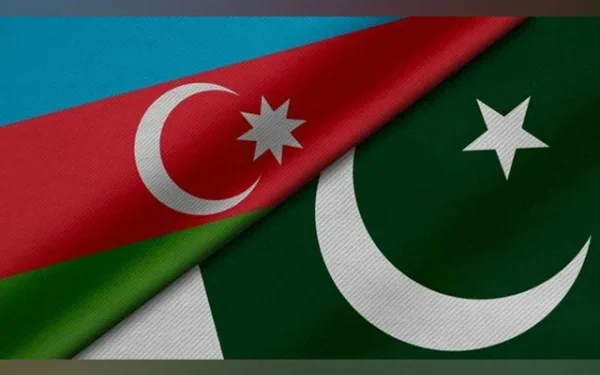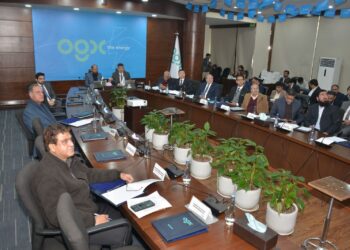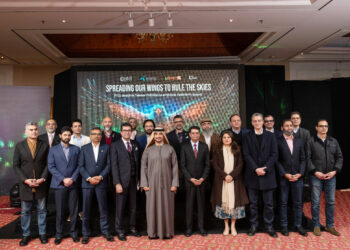ISLAMABAD: Azerbaijan has extended a financial lifeline to Pakistan by offering a loan exceeding $1 billion in the form of a cash deposit. This offer comes in response to Pakistan’s request for funding to support the $1.2 billion Sukkur-Hyderabad Motorway (M-6) project, a crucial infrastructure initiative aimed at enhancing connectivity and trade in the region.
Pakistan’s Request for Infrastructure Investment
Prime Minister Shehbaz Sharif, during his recent visit to Azerbaijan, sought financial assistance for two key infrastructure projects. These include:
- Sukkur-Hyderabad Motorway (M-6) – Estimated at $1.2 billion, this project aims to bridge the crucial gap between Sukkur and Hyderabad, completing the north-south corridor.
- Hyderabad-Karachi Motorway (M-9) – Valued at approximately $600 million, this project proposes a new route to alleviate congestion and enhance transportation efficiency.
Azerbaijan’s Two Funding Proposals
In response, the Azerbaijani government has proposed two funding mechanisms:
- Cash Deposit via Azerbaijan’s State Oil Fund: Azerbaijan could place a term cash deposit with the State Bank of Pakistan. The federal government would then lend this amount to the National Highway Authority (NHA) for motorway construction.
- Direct Funding via Islamic Development Bank (IDB): Azerbaijan, in collaboration with the IDB, could directly fund the Sukkur-Hyderabad Motorway project, ensuring financial security and structured implementation.
Previously, Azerbaijan expressed an interest in investing up to $2 billion in Pakistan. However, the Pakistani authorities have yet to present well-defined proposals to materialize these investments.
Pakistan’s Existing Foreign Exchange Support
Pakistan’s foreign exchange reserves have been supported by cash deposits from several countries:
- China, Saudi Arabia, UAE, and Kuwait have collectively provided $12.7 billion in cash deposits to Pakistan.
- Pakistan pays interest on these loans, which are often rolled over annually due to repayment challenges.
Government’s Internal Debate on Loan Mechanism
Despite Azerbaijan’s offer, Pakistani government departments remain divided on the loan mechanism:
- The Finance Ministry opposes taking the $1 billion cash deposit and disbursing it through the national budget. Instead, it suggests that NHA should borrow directly from Azerbaijan.
- The Deputy Prime Minister, Ishaq Dar, has been overseeing inter-ministerial meetings to finalize investment proposals across various sectors, including infrastructure, petroleum, trade, and IT services. A final decision is expected by April 3.
Feasibility and Timeline of the Motorway Projects
The Sukkur-Hyderabad Motorway (M-6) project has been divided into five sections for structured execution. The Public Private Partnership Authority (PPPA) Working Party recently approved the project’s qualification proposal. Following board approval, the bidding process for two initial sections will commence:
- Hyderabad-Tando Adam (First phase)
- Tando Adam-Nawabshah (Second phase)
The Islamic Development Bank (IDB) has expressed its willingness to fund these two sections. However, final approval will be granted after an IDB mission visits Pakistan next month. Azerbaijan, as part of its second funding option, has shown interest in financing the remaining three sections of the motorway.
If constructed under a public-private partnership (PPP) model, the M-6 motorway is expected to be completed within 2.5 years. Conversely, if built through the Public Sector Development Program (PSDP), NHA officials warn that limited budgetary resources could significantly extend the project’s timeline.
Significance of the Karachi-Hyderabad Motorway (M-9)
The Karachi-Hyderabad Motorway project will feature:
- Six lanes to accommodate high traffic volumes.
- Improved travel efficiency by reducing commute times.
- Enhanced road safety measures to prevent accidents.
- Support for industrial and commercial development, boosting Pakistan’s economic growth.
The National Engineering Services Pakistan (NESPAK) has been tasked with conducting a feasibility study and detailed design for the M-9 project to ensure its viability and success.
Conclusion: A Strategic Economic Opportunity
Azerbaijan’s proposed financial assistance presents a significant opportunity for Pakistan to enhance its road infrastructure, boost economic activity, and strengthen ties with a key international partner. However, the Pakistani government must carefully evaluate the loan structure, ensuring the funds are utilized efficiently and sustainably.
With decisions expected in the coming weeks, the fate of these crucial infrastructure projects will determine Pakistan’s ability to modernize its transportation network and attract further foreign investment.

























